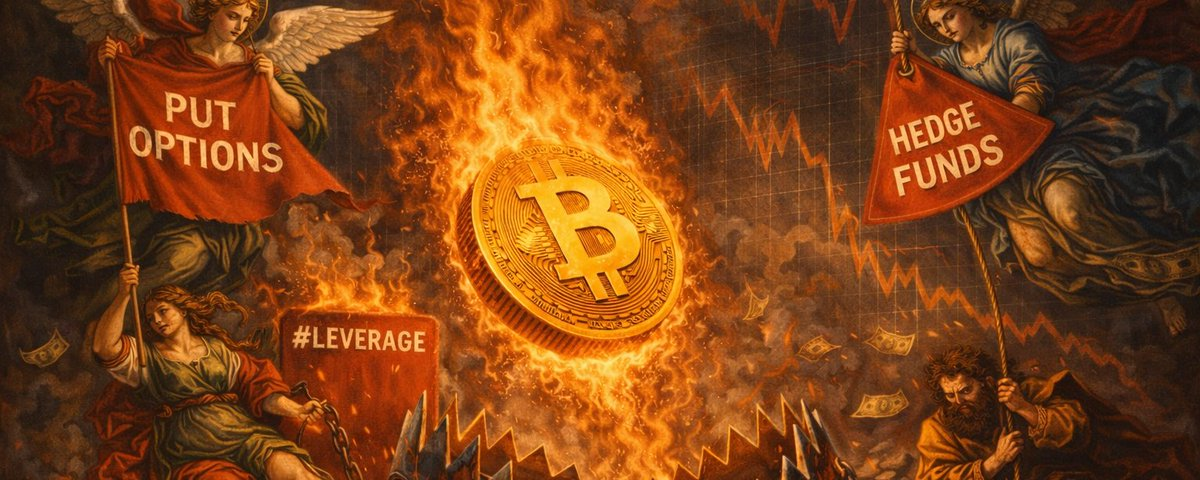Wall Street on Chain: Make the US Stock Market Great Again?
- 核心观点:美股代币化降低投资门槛,重塑全球市场。
- 关键要素:
- 美股总市值超40%全球占比,回报率稳定。
- 代币化实现24/7交易,碎片化降低门槛。
- 机构如Robinhood、Ondo加速布局链上股票。
- 市场影响:推动加密与传统金融融合。
- 时效性标注:中期影响。
Original author: 1912212.eth, Foresight News
Buying US stocks is a bet on the fate of the United States. If you invested $10,000 in the S&P 500 in 2002, it would now be worth $85,900. If you invested that same $10,000 in the Nasdaq, you might have received a return of $114,900.
As the world's largest securities market, the U.S. stock market rarely disappoints its investors. However, there are still too many investors in countries and regions around the world who are unable to access such assets and miss out on wealth.
What would happen if purchasing such assets no longer required an account, and was not restricted by region or trading hours? With just a mobile phone and a crypto wallet balance, one could buy shares of US stock giants anytime, anywhere. This is no longer a fictional plot; it is the real revolution being brought about by the tokenization of US stocks.
In the next era, the stock market will no longer wait for the bell to ring, and investing will no longer require brokerage orders.
Tokenization, in simple terms, is the process of converting real-world assets into programmable, tradable digital tokens. These tokens are based on blockchain technology and typically conform to ERC-20 or similar standards, ensuring transparency and security. Tokenized US stocks involve mapping or anchoring the shares of US-listed companies (such as Apple and Tesla) to a blockchain in the form of tokens, allowing them to be traded, transferred, and held on-chain, just like cryptocurrencies.
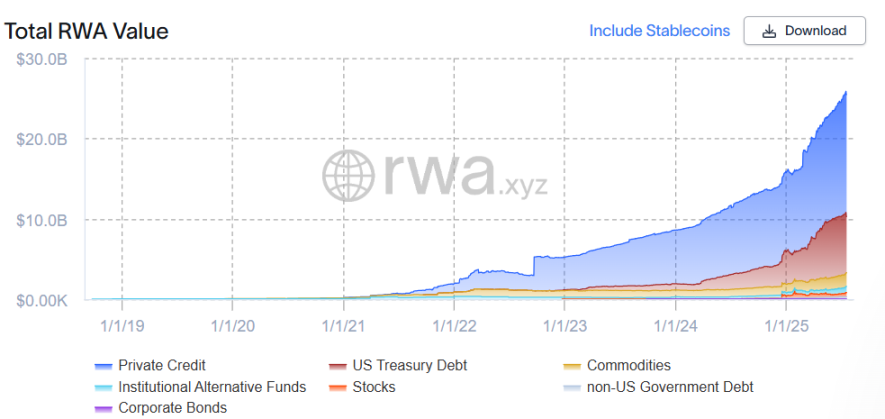
In short, tokenization is a "replica" of a traditional stock in the blockchain world, turning it into an "on-chain asset." For example, a single share worth tens of thousands of dollars can be fragmented into thousands of smaller units, allowing ordinary investors to participate with a low barrier to entry. While tokenization offers advantages such as 24/7 trading, reduced intermediary costs, and enhanced liquidity, it also carries regulatory uncertainty and technical risks.
For investors, tokenization of US stocks lowers the investment barrier. For businesses, the drive to explore tokenization stems from multiple factors. Liquidity bottlenecks in traditional financial markets are becoming increasingly prominent, especially during non-trading hours. Furthermore, institutional investors such as BlackRock and JPMorgan are viewing tokenization as a tool to reduce financing costs. Improved regulatory environments are providing policy support for this trend.
So why is the wave of tokenization pouring into the US stock market?
US stocks offer unique advantages over other asset classes. First, as the world's largest stock market, the US stock market's total market capitalization is expected to reach between $52 trillion and $59 trillion in 2025, far exceeding the stock markets of other countries or regions. The global total market capitalization in 2025 was approximately $124 trillion, with US stocks accounting for over 40%.
High returns are another key factor. The S&P 500 recently reached a record high of $6,336. The S&P 500 has averaged a 10.4% annual return since 1957 (approximately 6.5% after adjusting for inflation), with an average annual return of 10.364% over the past 20 years and 9% over the past 30 years. The barriers to entry for non-US investors investing in US stocks are high. Traditional investments require opening a brokerage account, meeting minimum investment amounts, adhering to trading hours (only weekdays from 9:30 AM to 4:00 PM Eastern Time), and navigating cross-border regulatory and tax complexities. Account opening is particularly cumbersome and expensive for overseas investors.
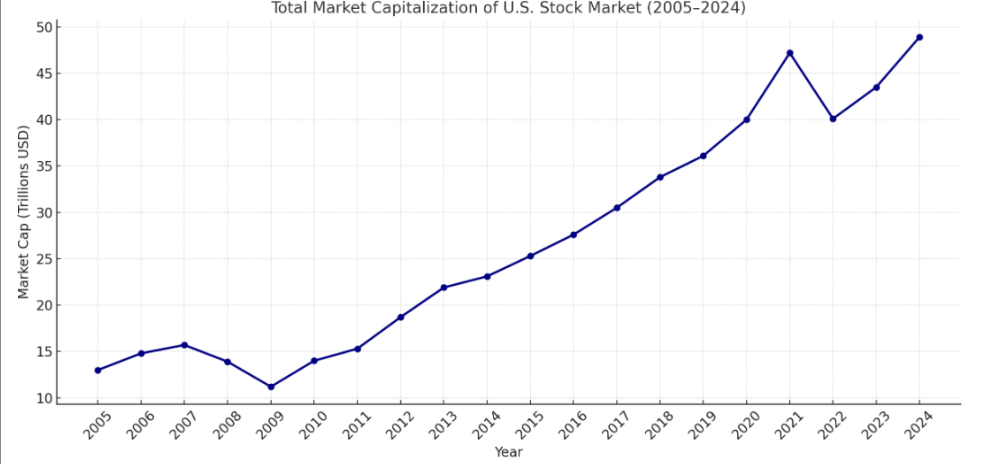
The tide is pouring in
Retail investors are flocking to tokenized US stocks to bypass barriers to entry and capitalize on the wealth effect. But what about institutional investors? Crypto exchanges, on-chain protocols, and online brokerages are all gearing up.
On May 22, cryptocurrency exchange Karken partnered with Backed Finance to launch a tokenized stock and ETF trading service called "xStocks," initially covering more than 50 U.S.-listed stocks and ETFs including Apple, Tesla, and Nvidia.
Another cryptocurrency exchange, Bybit, partnered with Swarm to enter the US stock market. Notably, Karken and Bybit do not issue equity tokens themselves, instead opting to partner with third parties. Other companies that have issued their own equity tokens include Backed Finance and Securitize. Backed Finance collaborates with protocols like Uniswap, leveraging MiFiD and Swiss DLT regulations to offer freely transferable tokenized shares and support on-chain trading. Securitize, on the other hand, partners with renowned institutions such as BlackRock and VanEck to provide end-to-end tokenization services.
However, the tokenization that is more popular and attracts more attention in the crypto circle is the blockchain institutional platform Ondo Finance and the well-known American brokerage firm Robinhood.
Ondo Finance is an institutional-grade platform focused on tokenizing traditional financial assets and bringing them to the blockchain. It is also the most prominent and comprehensive RWA project to date. Ondo's flagship product, USDY, is a tokenized U.S. Treasury bond with a total market value (TVL) of $1.39 billion. However, the market seems to be lukewarm, and its price has plummeted from $2 to around $0.7, where it has been fluctuating for a long time.
With the surge in the US stock tokenization craze, Ondo has been eager to capitalize. Since early July, it has partnered with Pantera Capital to invest $250 million in RWA tokenization. Then, on July 4th, it acquired Oasis Pro, a brokerage regulated by the US Securities and Exchange Commission, obtaining a series of US securities licenses. Ondo also plans to launch tokenized stock trading in the coming months.
In just one month, Ondo began to become extremely aggressive on the road to tokenization of US stocks.
On July 10, Ondo acquired Strangelove again to accelerate the development of the full-stack RWA platform. It also recently launched a global market alliance to cooperate with public chains, DEX, wallets, data service providers, cross-chain protocols, DeFi and other products to unify industry standards.
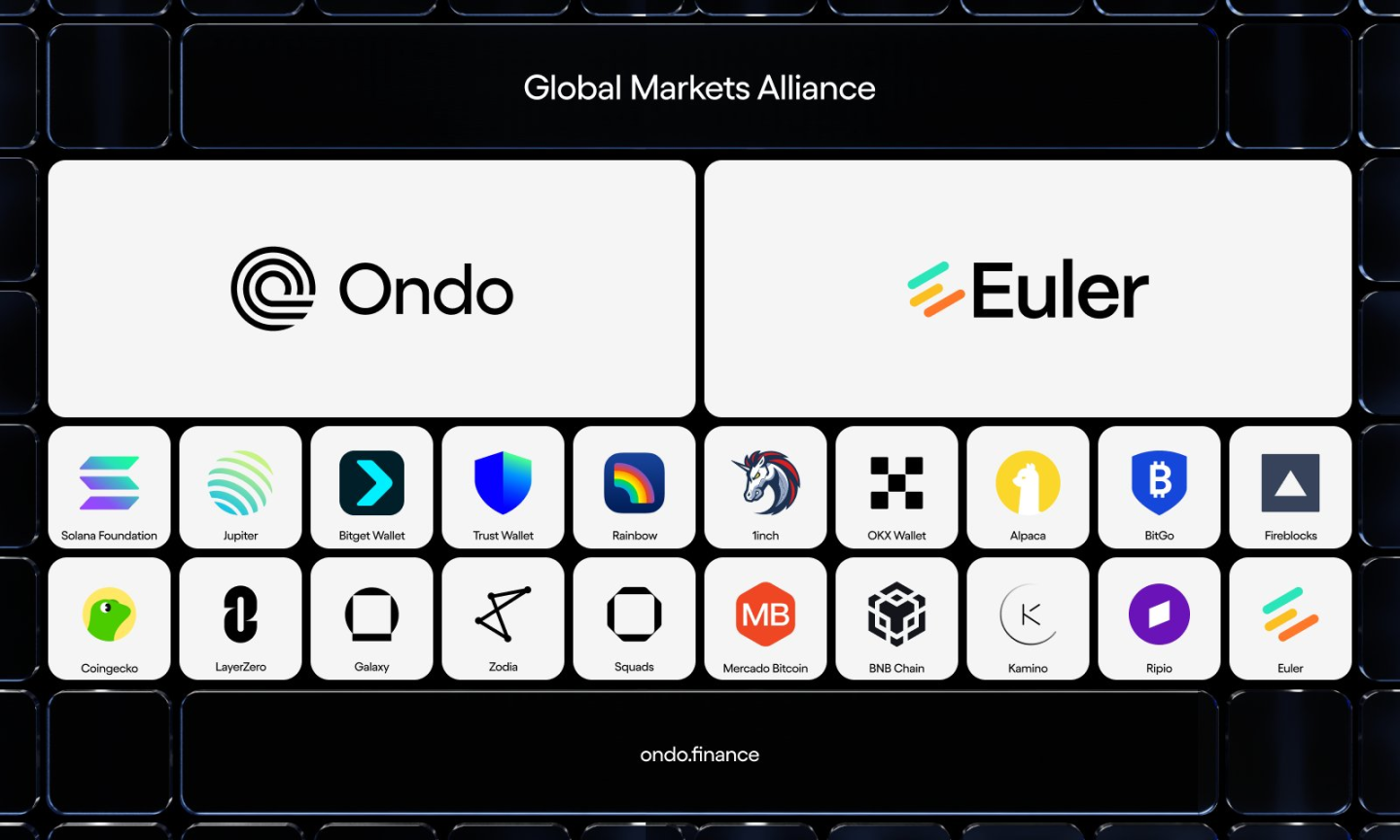
It can be foreseen that after Ondo launches tokenized US stocks, it will use its strong resource integration capabilities to push it to every corner of the crypto market, making it easy for crypto players to purchase tokenized US stocks.
Robinhood also personally participated in the tokenization of U.S. stocks, becoming the first U.S. listed brokerage firm to take the lead.
This player, who disrupted the traditional brokerage industry with its zero-commission trading model, has attracted a large number of young investors, especially millennials, with a low barrier to entry and ease of use. Its average user age is 35. It has 25.8 million accounts and $221 billion in managed funds.
In June of this year, Robinhood launched more than 200 on-chain stock tokens, and even launched tokenized equity in OpenAI and SpaceX, with each qualified user receiving 5 euros in OpenAI tokens.
Robinhood founder Tenev bluntly stated that the fundamental problem of the private equity market is that the highest-quality companies have too many options and don't proactively consider retail investors, leading to an "adverse selection problem." The key innovation of tokenization is that it allows investors to "become effective without having to be selected by the tokenized company," a breakthrough that Robinhood is driving.
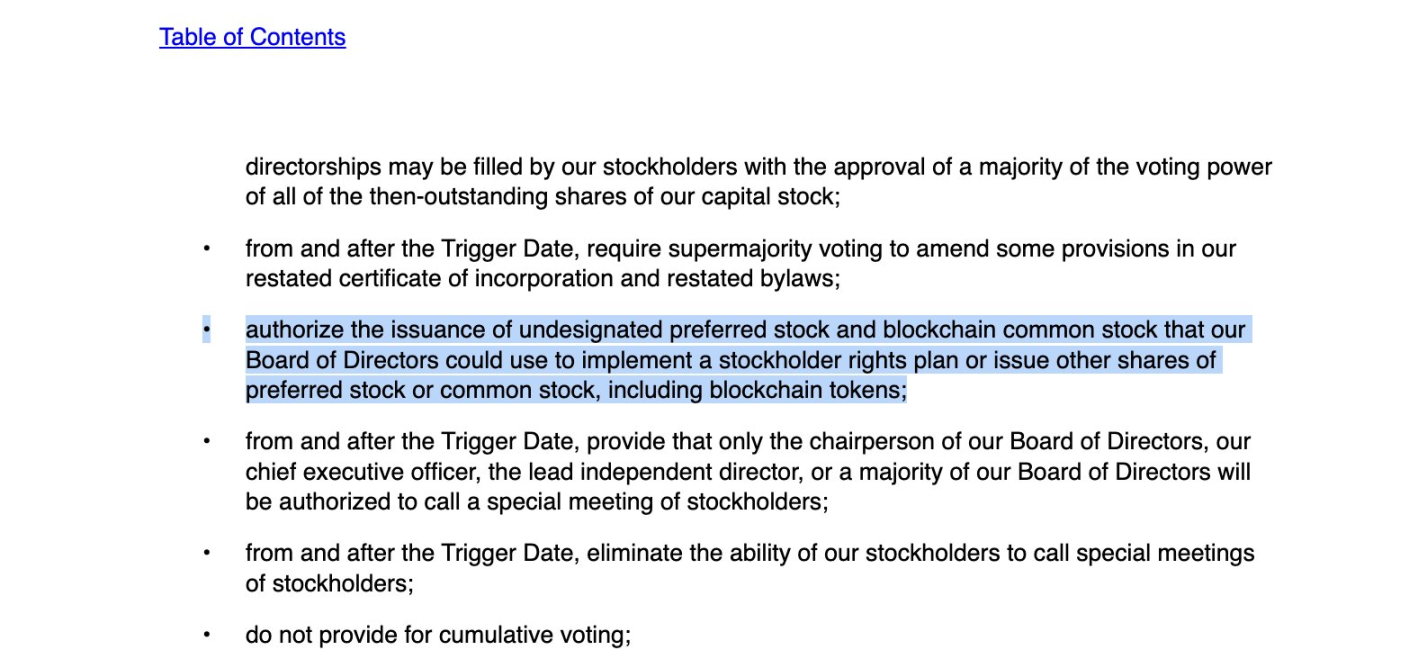
On July 21st, design software giant Figma released a revised version of its IPO Form S-1. Besides confirming the IPO price range, the new document, significantly different from the previous S-1 filed earlier this month, explicitly states that the company has officially authorized the creation of a new share class, "blockchain common stock." This grants the company's board of directors the authority to issue shares in the form of blockchain tokens in the future. In a sense, institutions have reached potential investors worldwide through the borderless blockchain platform, securing more potential buying opportunities.
By the first half of 2025, on-chain tokenization of US stocks had moved from concept to reality. According to rwa.xyz data, its total TVL had risen to $530 million, and the number of monthly active addresses had skyrocketed to 70,000.

The penetration of tokenization from pure encryption to traditional finance: no longer a speculative tool, but a bridge to improve efficiency.
Wild past
The current wave of tokenization of U.S. stocks is actually not a new thing. Its past is the price paid for innovation.
Early attempts at tokenizing US stocks can be traced back to the experimental exploration of decentralized protocols in the previous cycle. Synthetix was one of the first platforms to support trading of US synthetic assets. Users could hold tokens such as sTSLA and sAAPL on-chain, mimicking US stock price performance. However, these assets lacked actual stock backing and relied solely on collateralization mechanisms and price feeds from oracles, resulting in fragile liquidity and the risk of decoupling. According to statistics, the cumulative trading volume of sTSLA on the Synthetix platform was less than 800 times, and most projects ultimately pivoted due to regulatory pressure and unsustainable business models.
While there are no shareholder rights, this model opens the door to mapping crypto assets to real-world assets. This model uses oracles to provide prices, bypassing traditional custody mechanisms and providing a reference paradigm for subsequent players.
At the same time, centralized exchanges became the primary drivers of early US stock tokenization. In 2020, FTX partnered with German-licensed brokerage CM-Equity to launch tokenized US stocks like Tesla and Apple, allowing non-US users 24/7 trading. The tokens were backed by real stocks. In 2021, Binance followed suit, launching stock tokens, allowing users to trade Tesla and other stocks with zero commission using USDT.
However, these models are essentially derivatives within CEXs, lacking on-chain transparency and compliance guarantees, quickly triggering warnings from regulators in multiple countries. FTX, which saw $94 million in tokenized stock trading volume in the fourth quarter of 2021, abruptly ceased services following the platform's bankruptcy in 2022. Binance, meanwhile, delisted its products after just three months of operation due to regulatory pressure.
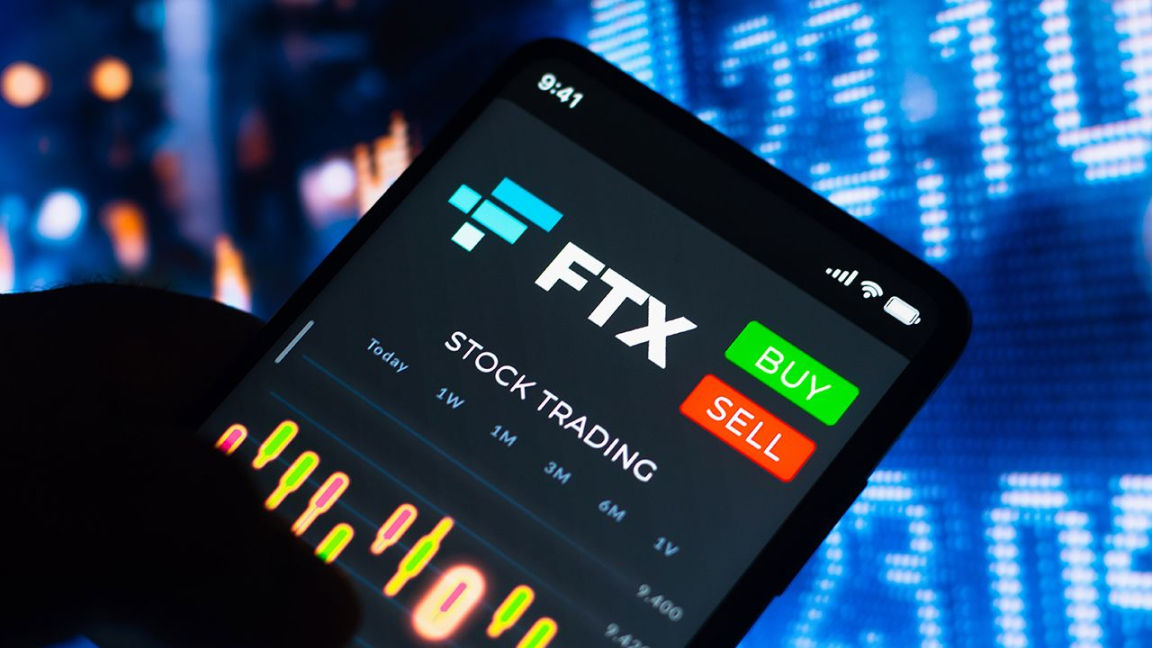
Ideals are great, but reality is harsh. The FTX debacle of 2022 marked a turning point in the tokenization of US stocks, with the market shifting from "wild growth" to "compliant reconstruction."
These cases exposed the core contradictions of early US stock tokenization: the imbalance between technical feasibility, compliance costs, and market demand. However, these practices laid the foundation for today's more compliant and structured tokenization attempts, driving market awareness of the potential of asset-on-chain.
The real meaning of "on-chain US stock assets" has been put on the agenda again since 2022 as the concept of RWA has heated up. Representatives of this round are Backed Finance and other projects. They generally adopt relatively friendly jurisdictions such as Switzerland and Liechtenstein, and use the "1:1 custody + verifiable reserves + on-chain issuance" method to map the actual US stock securities held into standard tokens such as ERC-20, which have stronger compliance and traceability.
In 2024, Exodus Movement became the first publicly traded company in the United States to tokenize its common stock. It issued EXOD tokens on the Algorand blockchain, allowing users to convert on-chain tokens into real shares listed on the New York Stock Exchange at a 1:1 ratio. This marked a shift in the SEC's stance on on-chain stocks, but the tokens only supported price tracking and did not include shareholder rights such as voting rights.
Challenges and risks
Fields brimming with opportunity always come with risks. The liquidity of US stocks on the blockchain is a real challenge.
On July 3rd, the price of AAPLX, a token tracking Apple, briefly jumped to $236.72, a 12% premium to the stock's then-trading price. A similar token tracking Amazon soared to $891.58 on July 5th, quadruple the stock's previous day's closing price. Even more extreme cases occurred on Jupiter, a peer-to-peer cryptocurrency trading platform. Blockchain data showed that early on July 3rd, an unidentified user attempted to purchase approximately $500 of Amazon's AMZNX token, briefly driving its price to $23,781.22, over 100 times Amazon's previous day's closing price.
xStocks, launched by Backed Finance in partnership with Kraken and others, is primarily used to track various stock-tracking tokens. However, due to thin trading volume on many cryptocurrency exchanges, xStocks is prone to volatile price fluctuations when users buy and sell more than the market can bear. These fluctuations can be exacerbated during nighttime and weekend periods when the stock market is closed.
The market's own liquidity, oracles, and potential manipulation concerns have deterred many on-chain US stock players.
In addition, user rights protection has also attracted market attention. After Robinhood announced the listing of OpenAI equity tokens, OpenAI quickly stated on X: "These 'OpenAI tokens' are not OpenAI equity. We have not cooperated with Robinhood, are not involved in, and do not endorse it. Any equity transfer requires our approval - which we have not approved. Please be careful."
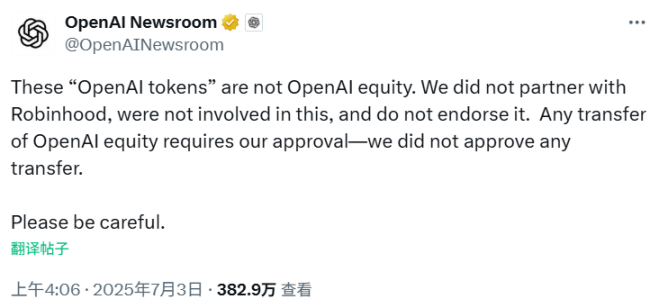
Elon Musk also quipped, "Your 'equity' is fake." With EU regulators like the Lithuanian central bank investigating and the SEC warning of potential violations, Robinhood's stock price reversed course. Bernstein analysts noted that the company is betting on SEC policy support and the passage of the CLARITY Act to open up the tokenized asset market.
Amidst the enormous controversy, Robinhood founder and CEO Vlad Tenev, in a recent appearance on "The CoinDesk Show," argued that the reactions of OpenAI and SpaceX were understandable but unfair. He vividly described it as "digital NIMBYism"—everyone supports tokenization in principle, but when it actually happens to them, the appeal fades. He argued that what people really want isn't complex financial instruments, but "capital as a service"—the ability to push a button and have funds in their account.
Whether the potential market demand can sustain a large-scale on-chain stock market remains a question. A veteran trader told Foresight News, "Trading US stocks on-chain is essentially finding US stock investors among crypto traders. For cryptocurrency traders accustomed to 24/7 global trading and the often volatile market conditions, it's questionable what percentage of them actually trade US stocks."
In addition, he added, “For non-cryptocurrency players, learning about on-chain wallets and other things in order to trade U.S. stocks is also a barrier to entry.”
Another challenge comes from regulation, as finance is usually a highly regulated area.
Recently, Paul Atkins, Chairman of the U.S. SEC, stated that he is considering introducing an "innovation exemption" policy for cryptocurrencies to encourage the market to advance the tokenization process.
However, this is not a shield that everything will be fine.

When Apple stock is "copied" onto the blockchain, who will ensure it truly represents shareholder value? Who will be responsible for information disclosure, compliant transactions, and anti-money laundering? Under US securities law, the issuance and transfer of any securities must be registered or exempted. The decentralized nature of on-chain assets is precisely incompatible with traditional compliance logic.
The U.S. SEC recently released a statement on security tokenization, stating, "Tokenization has the potential to facilitate capital formation and enhance investors' ability to use their assets as collateral. However, despite its potential, blockchain technology does not magically alter the nature of underlying assets. Tokenized securities remain securities. Therefore, market participants must carefully consider and comply with the relevant provisions of the federal securities laws when trading such instruments."
If tokenized US stocks involve cross-border custody, lack of KYC, or liquidity directed to unregistered platforms, they are likely to be deemed illegal securities offerings by the SEC. This presents a test for innovators and a blind spot for regulators—they cannot afford to let it go, but it's also difficult to apply old rules to the new paradigm.
Therefore, how subsequent tokenization companies and protocols "dance in shackles" in the gray regulatory area has become an important issue that must be faced.


